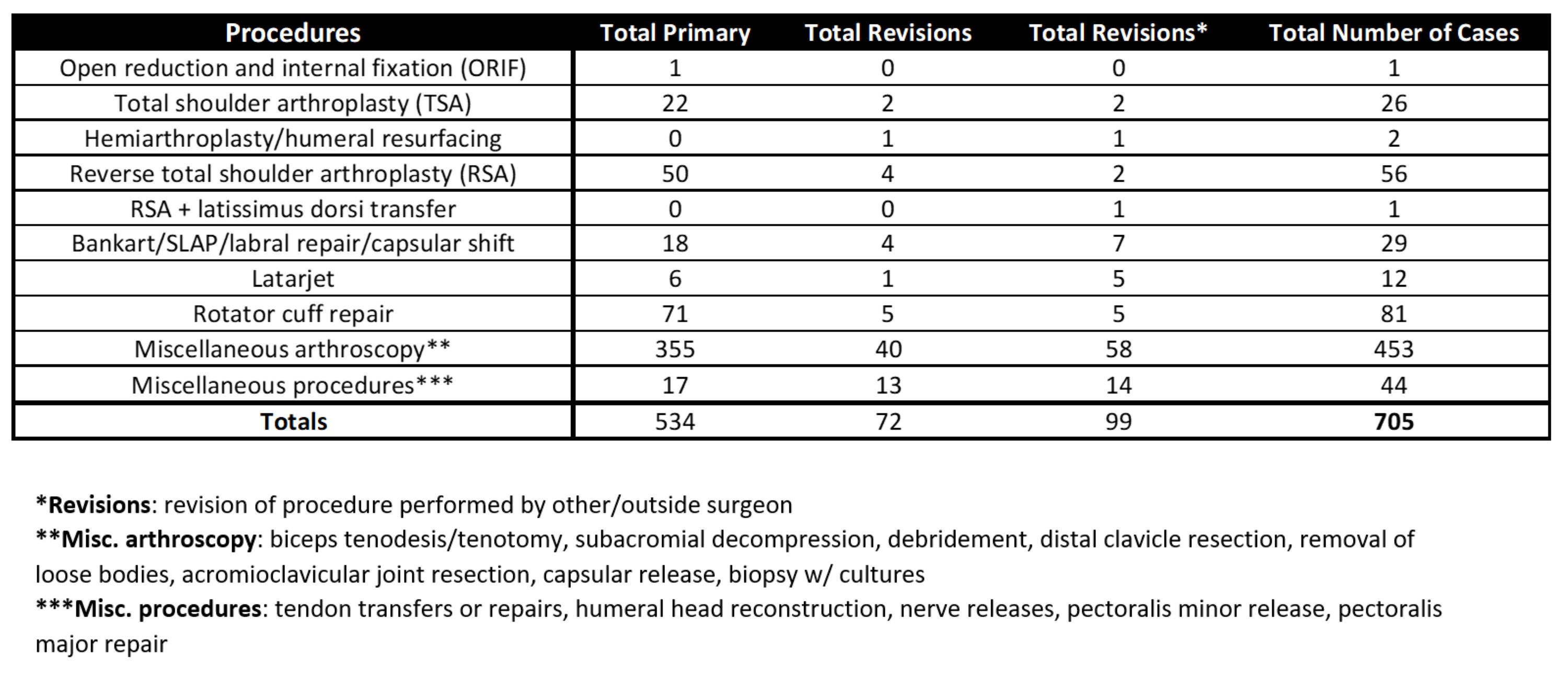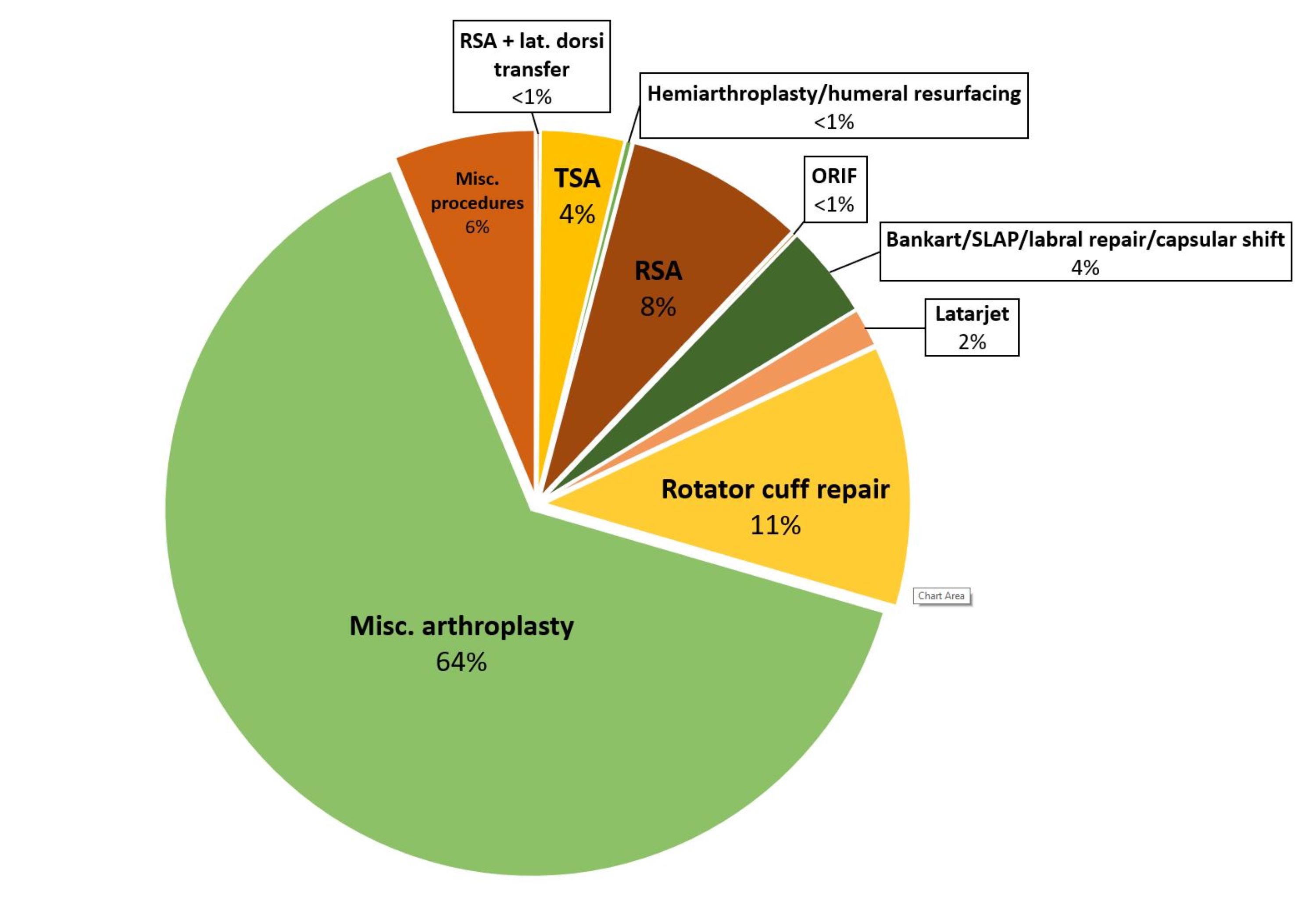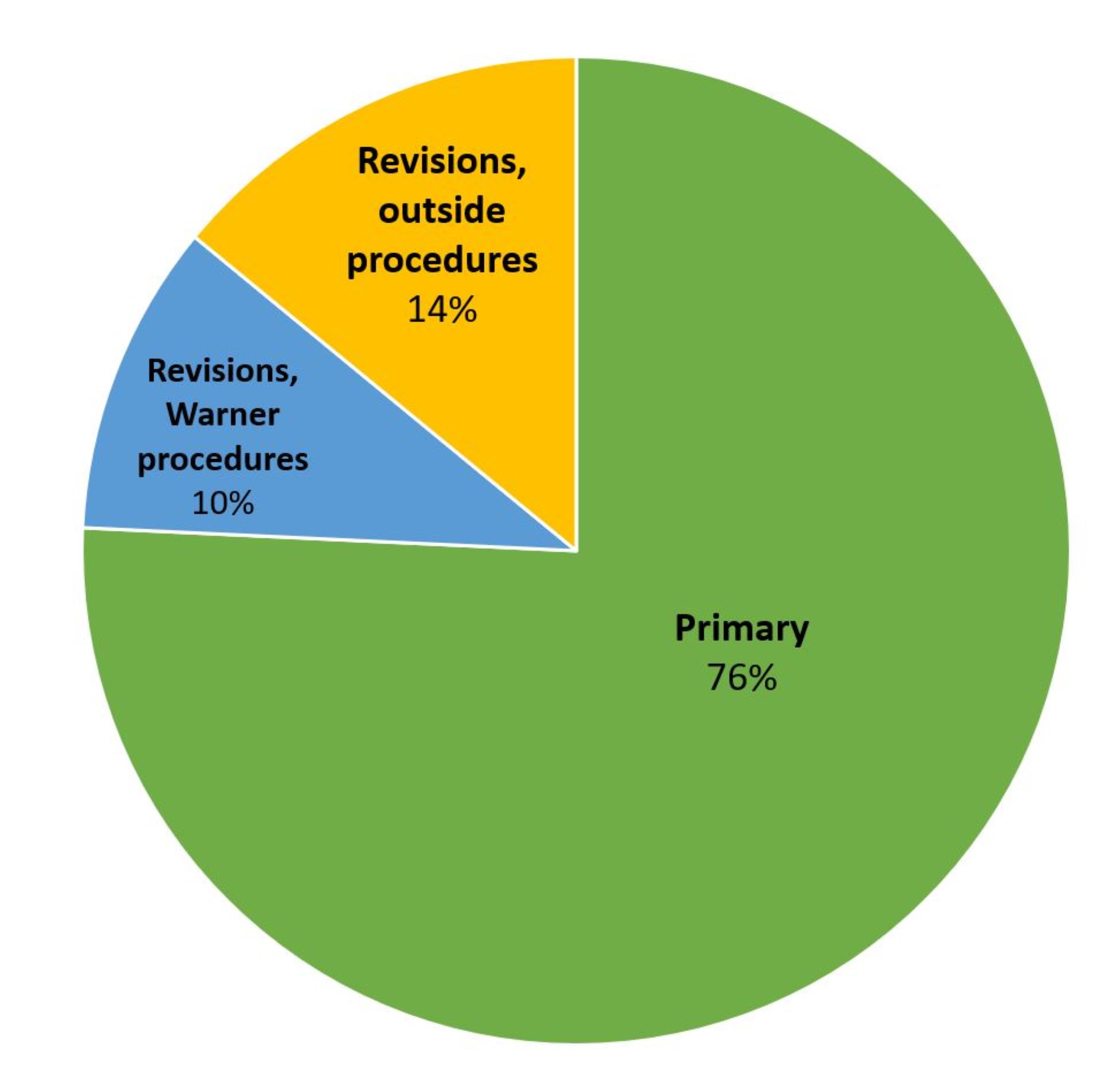2023 Outcomes Report (Dr. Warner)
One of the core values of our service is measurement and transparency. Thus, every year we review all surgical cases performed by physicians on our service and report these publicly for prospective and current patients to review as they wish. Reporting of long-term outcomes and more detailed data is not available in this report, though we aim to demonstrate the depth and aim of surgical cases.
Dr. Warner’s outcomes data is collected and complied by the clinical research coordinator for the service, utilizing the electronic medical records system of Massachusetts General Hospital as well as surgical billing data. Our methodology consisted of a review of all operations performed during the calendar year on a case-by-case basis, with special consideration made to procedure type, patient past surgical history (primary vs. revision status), and any complications arising during or after an operation. This data was collected, aggregated, and independently analyzed by the research coordinator with no direct input from the attending physician.
2023 Surgical Overview
The following section will provide an overview of all cases done by Dr. Warner in 2023. Importantly, procedures are not the same as total surgeries performed – one surgery may (and often does) include multiple procedures completed during the same operation. For example, a patient may undergo a shoulder arthroplasty and a biceps tendon tenodesis during the same surgery. These are recorded below as separate procedures, but a single surgery. If you have any questions regarding the methodology of data analysis and reporting, please email skoljaka@mgh.harvard.edu.
- 705 procedures were performed by Dr. Warner during the 2023 calendar year across 275 total cases.
- Of these 705 procedures, 534 were primary procedures. A “primary” procedure refers to the first surgical intervention done for a patient’s condition. If Dr. Warner performs a rotator cuff repair on a patient who has not had a repair done on that shoulder yet, this would be considered a primary surgery. 72 of these procedures were revisions of his own past cases (these revisions were performed in 2023, but the primary procedure may have been done at any time). 99 of these procedures were revisions of procedures performed by other/outside surgeons.

2023 procedures by type

2023 procedures by revision status

2023 Revision Descriptions
Of the 24% of Dr. Warner’s 2023 cases that were revisions, the average interval between primary and revision surgery was about 4.6 years. The shortest interval was 112 days or under 4 months, and the longest interval was 9855 days or 27 years. These revision procedures are summarized below:
2023 revisions for outside surgeons

2023 revisions for Dr. Warner’s cases

2023 Complications Overview
Of 275 patients operated on by Dr. Warner in 2023, 3 patients (1%) experienced a complication during or after surgery. These complications were identified in 2023. An explanation of each complication can be found below:
Intraoperative bleeding
This patient experienced arterial bleeding during a reverse shoulder arthroplasty that could not be immediately controlled. Another surgeon was summoned to the operating room and repaired the injury. The patient experienced no post-operative adverse effects and elected to complete the arthroplasty with Dr. Warner 5 months later. The patient is now completing physical therapy and progressing well.
This patient experienced venous bleeding during an arthroscopy procedure that could not be completely stopped in the operating room. The decision was made to transport the patient to a nearby hospital for evaluation and treatment by a vascular surgeon, who examined the patient and found minor bleeding easily controlled by electrocautery. The patient is recovering well in a sling 1 month later and reports improvement in pain levels.
Infection
This patient experienced symptoms of infection following their lower trapezius tendon transfer. The patient’s bacterial cultures are negative following a course of antibiotic treatment and an irrigation and debridement operation in January 2024. Patient’s recovery will be monitored closely.
